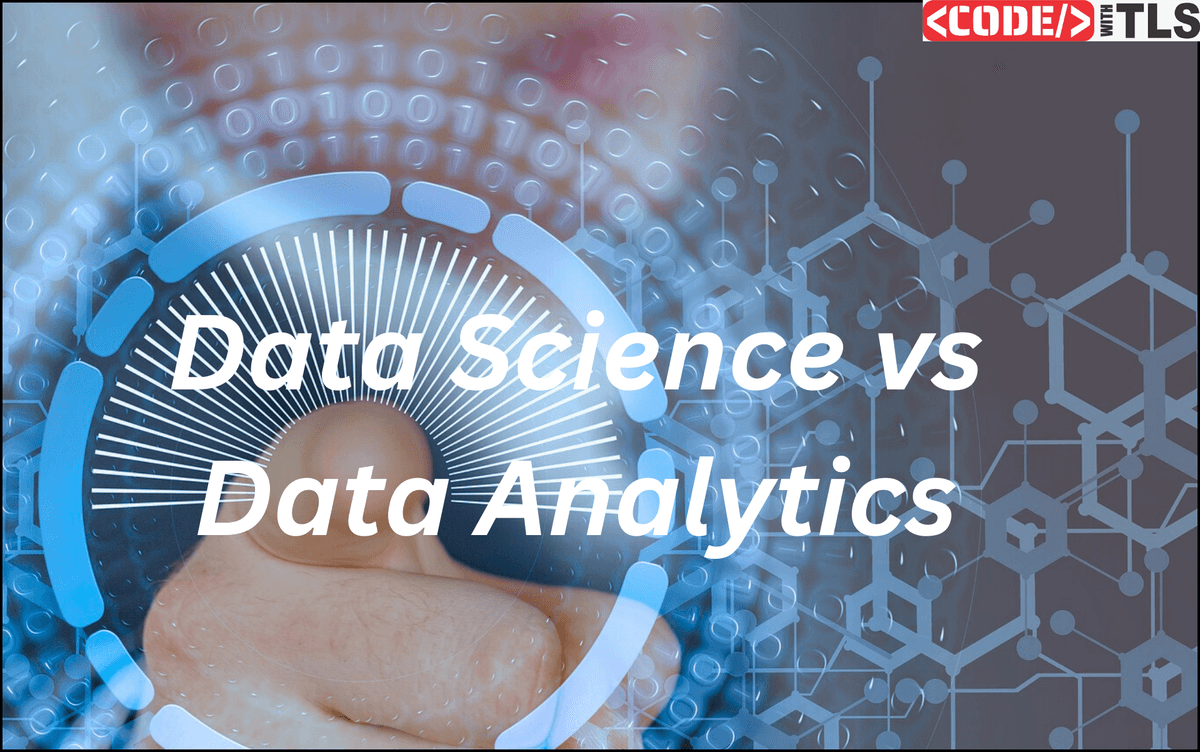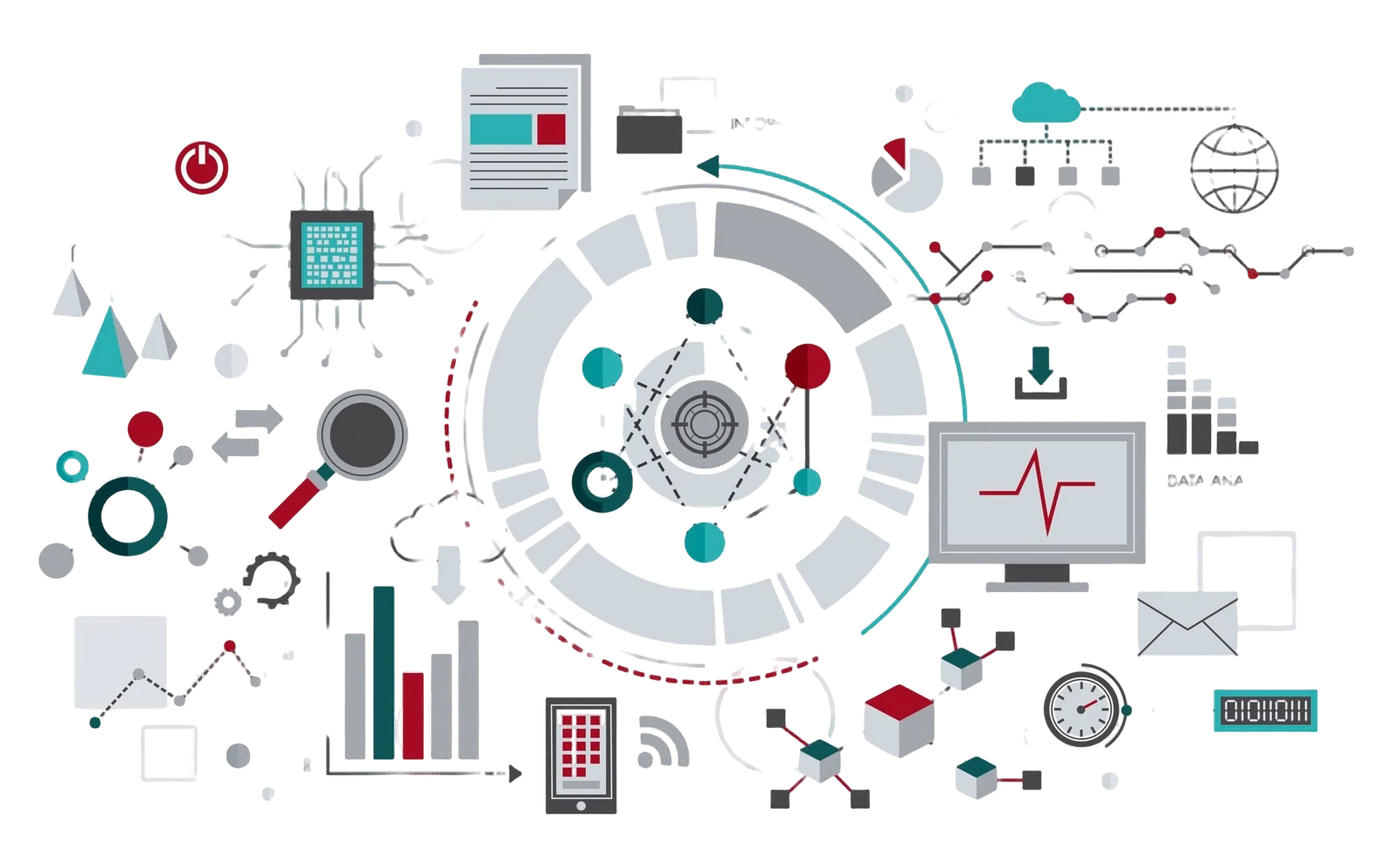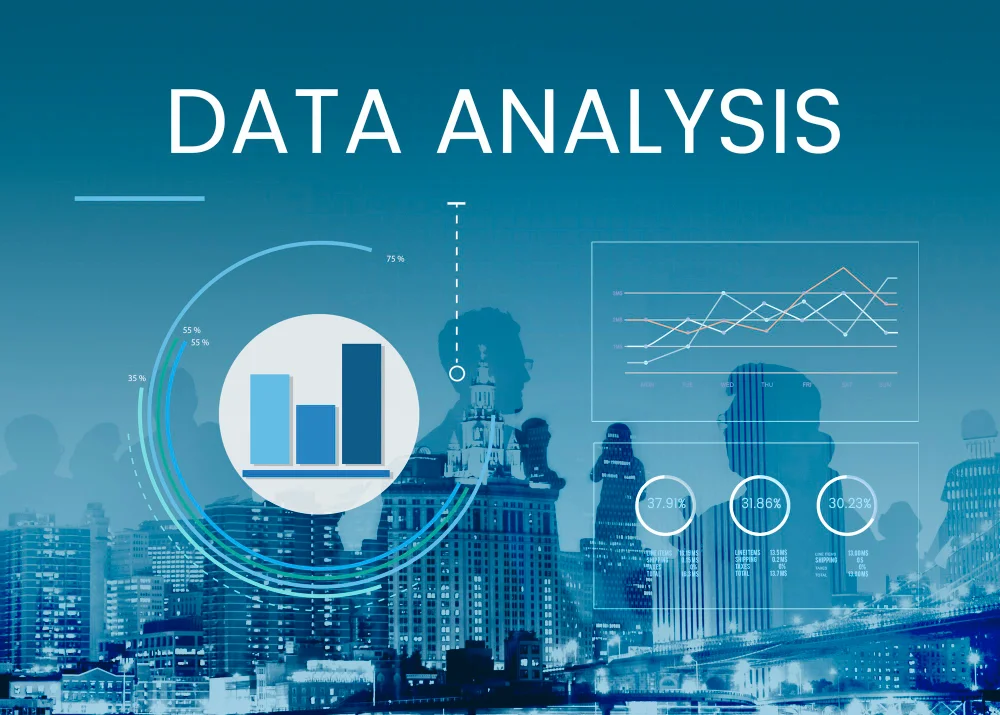

Data Science vs Data Analytics: Understanding the Difference
Published: 2025-01-10 09:29:50
In the digital age, where data plays a pivotal role in decision-making, two key fields often emerge: Data Science and Data Analytics. Though both focus on data, they differ in purpose, techniques, and required skills. Data Science involves advanced algorithms, machine learning, and statistical modeling to predict future trends, while Data Analytics focuses on interpreting historical data to inform current business strategies. This article explores the key distinctions and overlaps between these domains, providing insights into their respective tools, applications, and career opportunities, helping you understand which field aligns best with your skills and aspirations.
Understanding Data Science vs Data Analytics
Data Science and Data Analytics are two closely related yet distinct fields in the world of data. While Data Science focuses on creating models and predictive algorithms to uncover trends, Data Analytics emphasizes analyzing existing data to derive actionable insights. Together, they play a crucial role in driving data-driven decisions across industries.

The Core Definitions:
What is Data Science?
Data Science is a multidisciplinary field that focuses on extracting meaningful insights and knowledge from large and often unstructured datasets. It combines elements of mathematics, statistics, computer science, and domain expertise to solve complex problems. A data scientist often builds predictive models, develops machine learning algorithms, and uses big data technologies to uncover trends and patterns.
What is Data Analytics?
On the other hand, Data Analytics is more specific and application-driven. It involves analyzing existing data to identify actionable insights and improve decision-making. Data analytics typically deals with structured data and employs statistical techniques, visualization tools, and software to provide descriptive, diagnostic, and predictive insights.
Read Also: Python for Data Science: Why It’s Essential and How You’ll Use It
Data Science Projects for Beginners
Data Science vs Machine Learning
Digital Marketing Course Details
Digital Marketing Courses – Free & Paid
Key Differences Between Data Science vs Data Analytics
| Aspect | Data Science | Data Analytics |
| Focus | Discovery of new insights | Analysis of existing data |
| Scope | Broad and exploratory | Narrow and specific |
| Techniques | Machine learning, AI, data mining | Statistical analysis, visualization |
| Tools | Python, R, TensorFlow, Hadoop | Excel, Tableau, SQL, Power BI |
| Output | Predictive models, algorithms | Reports, dashboards, summaries |
The table above underscores the primary contrasts in the debate of Data Science vs Data Analytics. Data Science is about innovation and foresight, while Data Analytics emphasizes optimization and hindsight.
Applications of Data Science vs Data Analytics
Data Science Applications
- Healthcare: Predictive models for disease diagnosis and treatment recommendations.
- Finance: Fraud detection using machine learning algorithms.
- E-commerce: Personalized recommendations through data-driven insights.
- Social Media: Sentiment analysis and content recommendations.
Data Analytics Applications
- Retail: Inventory management and sales trend analysis.
- Marketing: Campaign performance evaluation.
- Sports: Player performance and game strategy analysis.
- Operations: Supply chain optimization.
Both fields play pivotal roles in shaping strategies across industries, but their objectives and methods differ significantly.
Digital Marketing Institute Delhi Job Guarantee
Digital Marketing Institute Online Courses
Digital Marketing Salary in India
Fast ReactJS Training in India
Flutter vs React Native Comparison
Full Stack Developer Roadmap 2025
Skills Required for Data Science vs Data Analytics
Skills for Data Scientists:
- Programming: Proficiency in Python, R, or Java.
- Mathematics and Statistics: Strong foundation in probability, linear algebra, and calculus.
- Machine Learning: Knowledge of supervised and unsupervised learning techniques.
- Big Data: Familiarity with tools like Hadoop and Spark.
- Domain Knowledge: Understanding the industry-specific challenges.
Skills for Data Analysts:
- Statistical Analysis: Expertise in summarizing and interpreting data.
- Visualization: Mastery of tools like Tableau, Power BI, and Excel.
- Database Management: SQL proficiency for querying data.
- Communication: Ability to convey findings clearly to stakeholders.
- Critical Thinking: Solving specific business problems effectively.
While the skill sets overlap, the depth and focus differ in Data Science vs Data Analytics.
Know About : AI/ML Project Ideas for Beginners: Build Your Skills with Practical Examples
Tools of the Trade
Data Science Tools
- Python: Versatile programming language for machine learning and data analysis.
- R: Statistical computing and graphics.
- TensorFlow and PyTorch: Deep learning frameworks.
- Hadoop and Spark: Big data platforms for processing massive datasets.
- Jupyter Notebooks: Interactive environment for coding and documentation.
Data Analytics Tools
- Excel: Traditional spreadsheet software for basic data analysis.
- Tableau and Power BI: Visualization platforms for creating dashboards.
- SQL: Essential for querying and managing databases.
- SAS and SPSS: Statistical analysis software for business insights.
These tools highlight the contrasting methodologies of Data Science vs Data Analytics, with Data Science leaning towards computational complexity and Data Analytics focusing on accessibility and visualization.
Career Paths: Data Science vs Data Analytics

Data Scientist Roles:
- Machine Learning Engineer
- Data Engineer
- AI Specialist
- Research Scientist
Data Analyst Roles:
- Business Analyst
- Marketing Analyst
- Operations Analyst
- Financial Analyst
Full Stack Developer Salary in India
Generative AI and the Future of Web Development
How to Become a Software Engineer After 12th
How to Learn Data Science from Scratch
How to Reverse a String in Java
Salary Insights:
- Data Scientists: Due to the complexity of their work, they often earn higher salaries, ranging from₹8,300,000 to ₹12,450,000 INR annually.
- Data Analysts: Typically earn between ₹4,980,000 to ₹7,470,000 INR annually, depending on experience and industry.
Both career paths offer lucrative opportunities, but the choice often depends on one’s interest in technical depth (Data Science) or business-focused analysis (Data Analytics).
Future Trends in Data Science vs Data Analytics

- AI Integration: The increasing use of AI in both fields is blurring the lines between them.
- Automation: Tools that automate routine tasks, enabling professionals to focus on strategic insights.
- Data Privacy: Growing importance of ethical practices and compliance with regulations.
- Interdisciplinary Approach: Combining expertise from various fields for holistic problem-solving.
FAQs related to Data Science vs Data Analytics:
1. What is the difference between Data Science and Data Analytics?
- Data Science is focused on building models, creating algorithms, and using machine learning to analyze large, complex datasets to predict future outcomes. It requires skills in programming and working with unstructured data.
- Data Analytics, on the other hand, deals with analyzing existing data to extract actionable insights for business decisions, often using statistical methods and visualization tools. It focuses more on descriptive and diagnostic analysis.
2. What skills do you need to be a Data Scientist?
- A Data Scientist needs proficiency in programming languages like Python or R, knowledge of machine learning and AI, expertise in mathematics and statistics, and familiarity with big data technologies such as Hadoop and Spark. Strong domain expertise is also crucial for solving industry-specific problems.
3. Can Data Analytics help in business decision-making?
- Yes, Data Analytics is essential for business decision-making as it helps organizations understand trends, performance, and potential areas for improvement. Tools like Tableau, Power BI, and SQL allow data analysts to create reports, dashboards, and summaries that guide strategic decisions.
4. Which field offers higher salaries, Data Science or Data Analytics?
- Data Science professionals typically earn higher salaries due to the technical and complex nature of their work. The average salary for Data Scientists in India ranges from ₹8,300,000 to ₹12,450,000 annually. Data Analysts, however, earn between ₹4,980,000 to ₹7,470,000 annually, depending on experience and industry.
5. Are Data Science and Data Analytics related?
- Yes, Data Science and Data Analytics are closely related, but they serve different purposes. Data Science is about creating models and algorithms to predict future outcomes, while Data Analytics focuses on analyzing historical data to provide insights. Both fields use data to make informed decisions but require different techniques and tools.
Summary
The discussion of Data Science vs Data Analytics is not about which is better but about understanding their unique contributions to the world of data. Data Science offers the tools and methodologies for groundbreaking discoveries, while Data Analytics ensures actionable insights for immediate business decisions. Together, they form the backbone of modern data-driven organizations.
Read More: MERN Stack Certification Course: What You’ll Learn and Why It Matters


